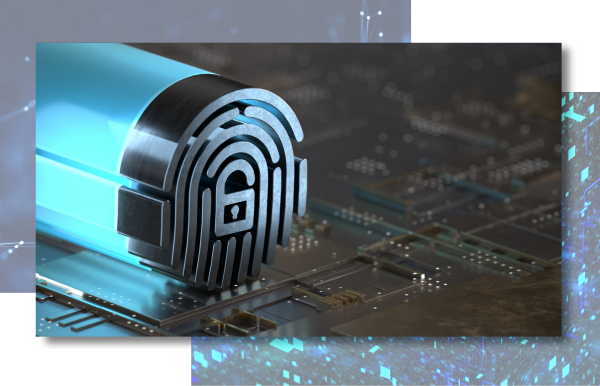Data breaches have become more common and damaging, causing costly disruptions and reputational fallout that can take years to repair. A recent example is the case of National Public Data, a U.S.-based data collection company. After a breach exposed the sensitive information of nearly three billion users, National Public Data faced overwhelming financial and operational challenges, ultimately leading to bankruptcy. This incident highlights just how devastating a breach can be for a company’s finances and continuity.
So, how can businesses protect themselves from such catastrophic breaches? The answer lies in adopting resilient cyber security practices to prevent, detect, and respond to threats effectively. Here’s why robust cyber security and data breach measures are essential for today’s businesses.
Lessons from National Public Data: Breaches Can Be Business-Ending

For National Public Data, the breach led to a loss of trust and significant financial and legal repercussions, highlighting the devastating impact of mishandled data. This scenario underlines the importance of comprehensive, proactive cyber security practices that protect against attacks and limit damage in the event of a breach. By keeping security systems up-to-date, companies can shield themselves from severe, potentially business-ending risks.
The Rising Financial Toll of Data Breaches
The National Public Data case is not unique; each year, the cost of breaches continues to climb. Beyond immediate fixes, the financial consequences include customer churn, reputational damage, and legal costs. According to recent reports, breaches caused by stolen credentials average £4.27 million per incident, with malicious insider incidents costing even more at £4.36 million. Investing in effective cyber security solutions can prevent these costly repercussions. As Achi Lewis, VP EMEA at Absolute Security, put it: “Having the right cyber resilience posture to prevent, respond, and recover from cyber threats is more cost-effective than suffering a major breach.” With well-chosen systems and protocols, organisations can limit the financial and operational impact of a breach, saving time and resources in the long run.
Protecting People as Well as Data
A data breach impacts not only businesses but also individual customers, especially vulnerable groups. For those affected, it can lead to identity theft, financial stress, and emotional strain. The Information Commissioner’s Office (ICO) recently emphasised the need for businesses to communicate with empathy in the event of a breach, supporting vulnerable customers. By implementing robust security practices, companies help protect their customers and demonstrate a genuine commitment to data protection.

Effective Handling of Cyber Security and Data Breaches: Building Stronger Security Practices
Creating a resilient cyber security infrastructure goes beyond software; it requires a multi-layered approach. Key steps include:
Regular Employee Awareness Training: Human error often contributes to breaches, such as through phishing or weak passwords. Awareness programmes help employees spot potential threats, making them the first line of defence.
Implementing Multi-Factor Authentication (MFA): Requiring multiple methods of verification strengthens security, even if login credentials are compromised.
Advanced Threat Detection Systems: AI-powered detection tools can identify unusual activity in real-time, stopping breaches before they escalate.
Regular Security Audits and Vulnerability Assessments: As cyber threats evolve, regular audits ensure defences remain effective against new risks.
How Tecnica Can Help Secure Your Business
Cyber security can be challenging, which is why partnering with a trusted provider like Tecnica can be transformative. Tecnica has years of expertise in safeguarding businesses from diverse digital threats, offering a suite of services that help organisations build a resilient and secure cyber framework.
Here’s how Tecnica’s solutions can enhance your organisation’s cyber security:
- Advanced Threat Detection and Monitoring: Early detection of potential threats is key to preventing breaches. Tecnica’s advanced threat detection systems continuously monitor your network for unusual activity, providing real-time alerts that allow you to take immediate action. This proactive approach helps minimise risk, stopping threats before they cause major disruption.
- Incident Response Planning and Support: In the event of a breach, having a well-defined incident response plan is essential to mitigate damage. Tecnica works closely with businesses to develop robust response protocols that address containment, investigation, and resolution of incidents. Tecnica’s team is also available to support you through any live incidents, helping you to contain breaches quickly to protect your data and avoid operational downtime.

- Multi-Layered Security Infrastructure: Effective security requires multiple protective layers. Tecnica builds a comprehensive security architecture, combining firewalls, intrusion detection systems, encryption protocols, and endpoint security solutions to create a holistic, custom defence tailored to your organisation’s unique needs.
- Regular Security Audits and Vulnerability Assessments: As threats evolve, it’s crucial to keep security measures up to date. Tecnica offers regular security audits and vulnerability assessments, thoroughly examining your IT environment to identify potential weaknesses and ensure that your defences stay robust and effective. These audits adapt to the latest cyber risks, helping you stay ahead of potential threats. Addressing cyber security and data breaches comprehensively helps future-proof your operations.
- Secure Cloud Solutions: With more businesses adopting cloud-based systems, cloud security has become a vital part of any cyber security strategy. Tecnica provides secure cloud solutions that protect your sensitive data within cloud environments. From encryption to access control and continuous monitoring, Tecnica’s services ensure your cloud platforms remain secure without compromising accessibility.
- Data Loss Prevention and Backup Solutions: Protecting critical data involves more than preventing breaches—it’s also about ensuring reliable backups. Tecnica’s data loss prevention and backup solutions safeguard against unauthorised access, accidental deletion, and data corruption, ensuring that important data is always recoverable in the event of an incident.
Tecnica’s approach is designed to provide not only protection but peace of mind. Our dedicated team understands the unique risks businesses face and is committed to providing solutions that evolve as cyber threats do. By partnering with us, you gain more than just a provider—you gain a trusted ally in cyber security who is as committed to your business’s safety as you are.
Ready to Protect Your Business?
Data breaches are a growing concern for businesses. By investing in strong cyber security practices and choosing a reliable partner like Tecnica, organisations can protect their data, maintain customer trust, and ensure their operations remain uninterrupted. If you’re ready to strengthen your defences and secure your business’s future, contact Tecnica today to learn how we can help.
Frequently Asked Questions:
A data breach is an incident where confidential or sensitive information is accessed by unauthorised parties, potentially compromising both privacy and security for the affected organisation. This can result in financial losses, reputational harm, and regulatory consequences for the affected business.
The impact can be severe. A breach can lead to direct financial losses, operational disruptions, legal repercussions, and a loss of customer trust. In some cases, as seen with National Public Data, breaches have even caused businesses to close down.
Beyond the immediate costs of containing the breach, businesses face customer turnover, reputational damage, and potential regulatory fines. Additional expenses often include legal fees, increased insurance premiums, and the cost of improving cyber defences post-breach.
Common causes include phishing attacks, weak passwords, malware, and compromised credentials. In some cases, breaches result from insider threats or employee errors, making regular training and security protocols essential.
Businesses can reduce risks by implementing measures such as multi-factor authentication, regular security audits, employee training, and advanced threat detection systems. These strategies help prevent breaches and minimise their impact if they occur.
Data breaches can have a direct impact on customers, especially those from vulnerable groups, leading to potential financial and emotional harm. Demonstrating empathy and providing clear, supportive communication can help preserve trust and provide much-needed reassurance.


